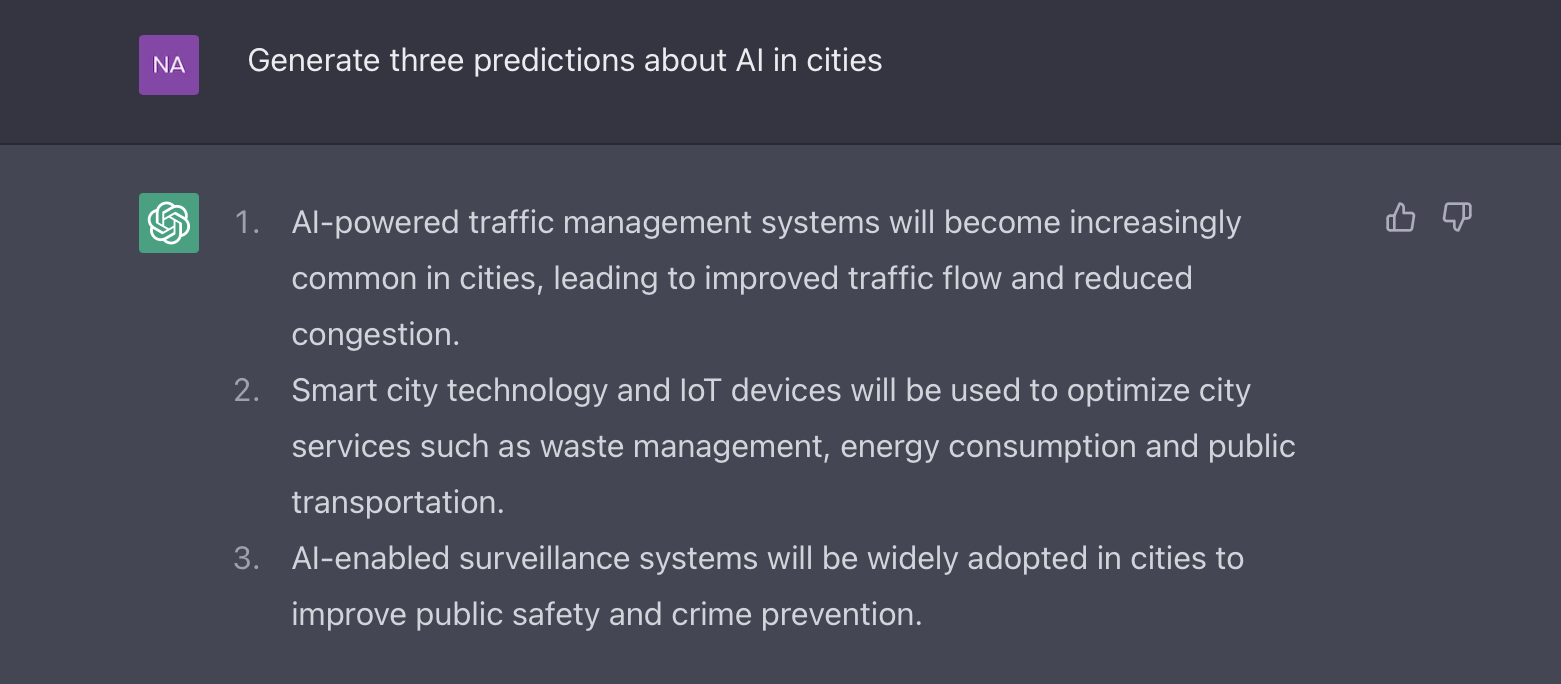Cities and AI, learning from the ChatGPT hype
📬 Get the future posts directly in your inbox:
We are seeing an explosion in Artifficial Intelligence (AI) products, in the last weeks ChatGPT has been making the rounds, twitter is full of people building AI based products, and just a couple of weeks/months? there was the trend of using an AI to build profile pictures. But, will AI improve how we experience urban life? And if so, how will it improve our experience?
I can imagine different scenarios, chat bots that explain to us public policies in more human ways than reading legislature or navigating through government websites; Image generators to imagine/dream new urban developments and retrofits with multiple inputs from communities, policy makers, and stakeholders; Or conversational tools to apply for municipal permits, and interact with local governments. Of course, these examples assume all the best from the technology, but we should take all of them with a grain of salt.
These are just some examples of how AI might have an impact in how we experience cities, and certainly, the now popular ChatGPT also has some predictions on how it will impact cities life. I asked ChatGPT to generate three predictions these were them:

Some questions that arise: Do we want to optimize traffic management? Or should we be aiming to build more human-center cities? We already know that cars, and optimizing cities for them, will never solve urban problems, not even electric cars or “intelligent” cars will do so (cof cof Elon). On the other hand, AI might help to tackle the complexity behind the synchronization of different public transport systems, and it might help to improve their service. But certainly, we need to be aware, and care, that these optimizations does not harm underserved communities.
And finally, surveillance systems with AI. It is well documented that there are heavy biases in using AI algorithms for crime prevention, so certainly we shouldn’t get going into that place.
As fascinating as AI and the new advances are, there are still some gaps that we need to address. Not only from the technological perspective, but also from the social one, doing AI literacy, training people to recognize a cheap AI answer, the types of answers that sound plausible, but that when analyzed for a minute do not make much sense. Interesting times coming on our way. 🤖
📬 Get the blog posts directly in your inbox:
💬 Join the conversation:
Keep to conversation with a comment or reach out in my social networks.